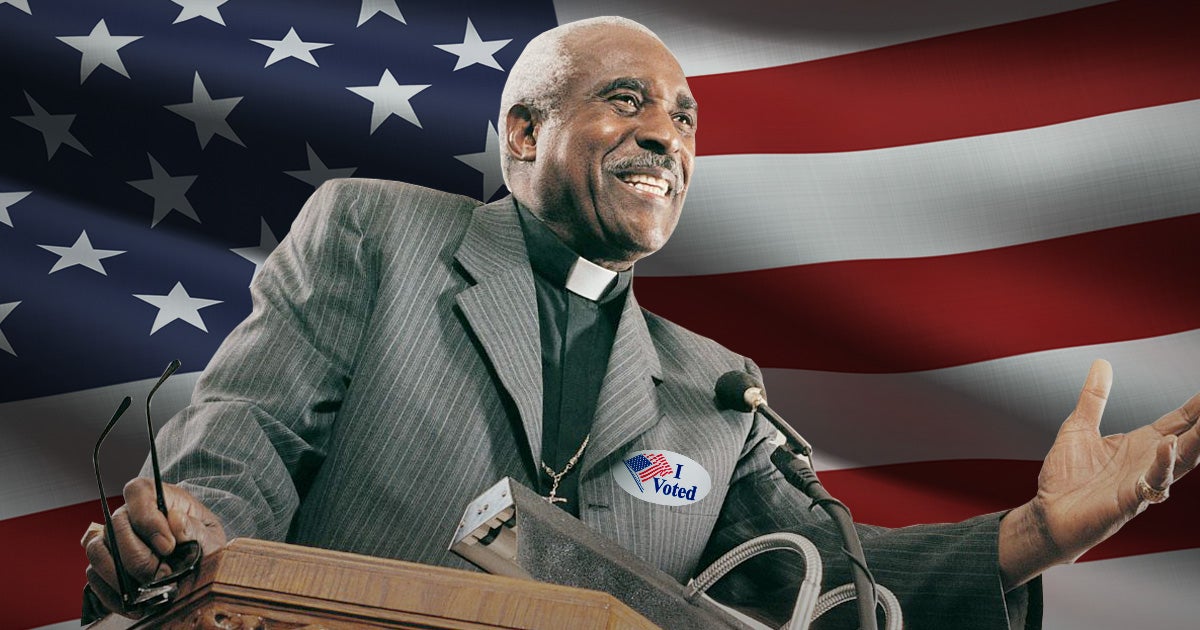
by Jorge Gomez • 5 min read
The 2024 election is less than one year away. With campaign season underway, religious leaders and people of faith often ask, “What are my rights when it comes to addressing political issues?”
There are many misconceptions about what rights and freedoms pastors and houses of worship have on political matters. Opponents of religious freedom often manipulate information to make you believe that politics and the pulpit may never converge, making faith-based organizations, churches, synagogues and everyday religious Americans fear legal ramifications if they mention or participate in politics.
But the truth is, that fear isn’t based on the law. It’s a scare tactic by those who want to silence and suppress people of faith, and keep them from voicing their opinions and voting their values.
Here are some critical facts that you need to know.
4 Things Churches and Pastors Are Legally ALLOWED to Do During Elections
The number of things pastors can do during election season far outweigh the number of things they can’t do—in both quantity and importance.
1. It’s Okay to Speak About Political Issues in the Church
It is a misconception that pastors cannot address political issues—even “hot button” issues like religious liberty, abortion and same-sex marriage—from the pulpit. Any person or entity that attempts to silence a pastor for addressing these issues is violating that pastor’s constitutional rights under the First Amendment. Pastors have every right under the First Amendment to talk about any of those issues, and there’s never been any case in American history that said pastors can’t do that.
Historically in America and in many places around the world, government and religion have never been mutually exclusive concepts; rather, they coexist. America’s Founders saw religion as a necessary component to a healthy, moral society—not a taboo topic to bar completely from the political realm; neither was political talk to be barred from churches. Sermons on politics, government and controversial issues were common at our nation’s founding, and popular among pastors and churches on varying sides of the political spectrum.
2. Religious Leaders Can Educate Their Congregation About Politics
Religious leaders are tasked with equipping their congregants in works of service, and that includes representing their faith and morality in the voting booth. Pastors are fully protected when it comes to issues like educating members of their church about the political process, handing out non-partisan voter guides and flyers so members can read about each candidate’s positions, and even providing the opportunity for members to register to vote.
3. Inviting Political Candidates to Speak at Church is Allowed
Contrary to popular belief, pastors and churches can invite political candidates to address their congregation from the pulpit, as long as all the candidates in a race are included in the invitation. What if only one candidate accepts the invitation and shows up? No problem!
4. Pastors Can Participate in Politics in Their Individual Capacity
Serving in ministry does not disqualify pastors or other religious leaders from their individual rights as U.S. citizens. Pastors can participate in political campaigns, hold office within political campaigns, and even endorse a candidate in their individual capacity as a private citizen.
What Religious Leaders CANNOT Do During Elections
According to IRS regulations, there are only two things that pastors and churches, when classified as a 501(c)(3) organization, cannot do:
A Church Entity May Not Endorse One Candidate Over Another
This does not mean that a pastor—in his individual capacity as an American citizen—may not endorse one candidate over another. A 501(c)(3) church or organization may not, however, as an organization endorse one candidate over another or be publicly against one candidate over the other.
A Church May Not Give its Money to One Candidate Over Another
This doesn’t mean that pastors or church members, in their individual capacities as American citizens, cannot donate to the political campaign of their choice. They can even be the Campaign Chair for a candidate if they want. But an official 501(c)(3) organization may not donate church funds or resources to one political candidate over another.
Our Responsibility as People of Faith to Be Good Citizens
Americans—including people of faith—have a responsibility to be good citizens, active and engaged in our political process. We recognize that religious freedom is indeed one of the greatest blessings bestowed to our country and the first freedom from which all other liberties flow. At the same time, however, we cannot ignore how important other civil rights—such as the right to vote—are to the flourishing and the betterment of our country.
In Romans 13:1, Scripture commands us to be obedient and respectful of authorities and the governmental institutions around us:
“Everyone must submit himself to the governing authorities, for there is no authority except that which God has established. The authorities that exist have been established by God.”
In the American system of government, the government is “of the people, by the people, and for the people.” So, showing respect for authority in the United States includes us being an active part of the process and voting. In other words, we can show love for both God and country by consciously participating in our republican form of government. Part of the bargain of living in liberty is a duty to vote and making our voices heard in the public square.
This election season, we encourage every religious American to vote according to their conscience and their values. Every person of faith should know this: protecting religious freedom and all our God-given liberties isn’t just a battle that we’re fighting in the courtroom. It’s a fight that we can also win if we show up at the ballot box.